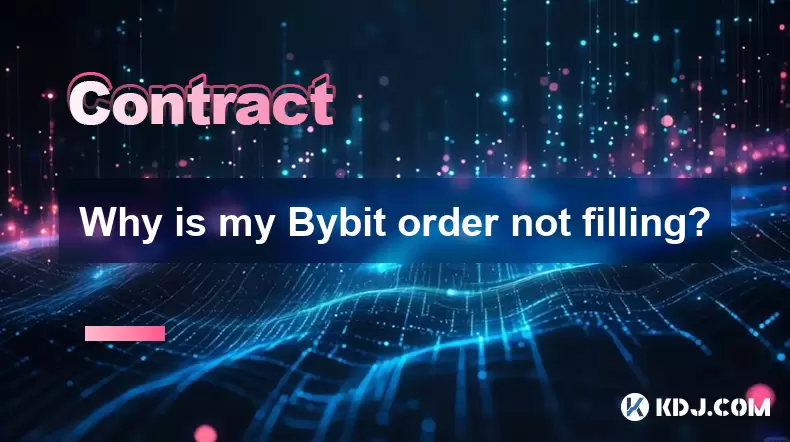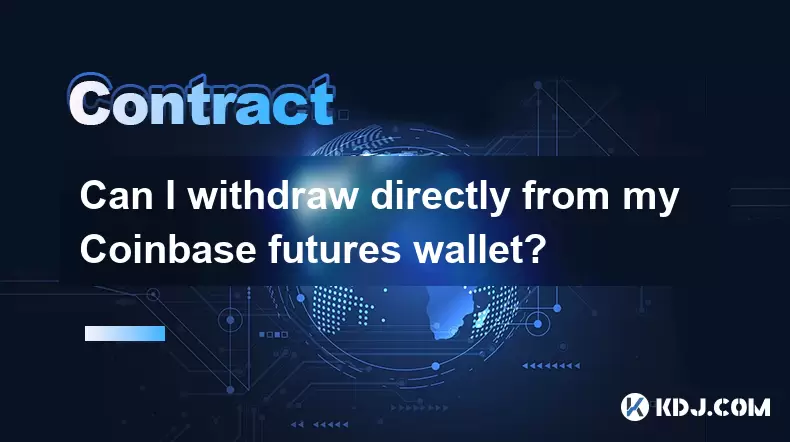-
 Bitcoin
Bitcoin $117400
-0.46% -
 Ethereum
Ethereum $3768
0.60% -
 XRP
XRP $3.551
2.09% -
 Tether USDt
Tether USDt $1.000
0.00% -
 Solana
Solana $203.2
11.30% -
 BNB
BNB $770.9
1.92% -
 USDC
USDC $0.9999
0.01% -
 Dogecoin
Dogecoin $0.2709
-0.02% -
 Cardano
Cardano $0.9024
4.49% -
 TRON
TRON $0.3139
0.60% -
 Hyperliquid
Hyperliquid $45.60
-1.41% -
 Stellar
Stellar $0.4730
-1.34% -
 Sui
Sui $4.025
2.15% -
 Chainlink
Chainlink $19.79
2.19% -
 Hedera
Hedera $0.2724
-2.39% -
 Avalanche
Avalanche $25.93
3.05% -
 Bitcoin Cash
Bitcoin Cash $524.0
-1.83% -
 Shiba Inu
Shiba Inu $0.00001558
0.50% -
 Litecoin
Litecoin $116.7
-0.30% -
 UNUS SED LEO
UNUS SED LEO $8.996
0.00% -
 Toncoin
Toncoin $3.334
1.83% -
 Polkadot
Polkadot $4.506
0.34% -
 Uniswap
Uniswap $10.99
4.83% -
 Ethena USDe
Ethena USDe $1.001
0.03% -
 Pepe
Pepe $0.00001461
3.17% -
 Monero
Monero $320.3
-1.01% -
 Bitget Token
Bitget Token $4.935
0.36% -
 Dai
Dai $0.9998
0.00% -
 Aave
Aave $322.4
-1.25% -
 Bittensor
Bittensor $455.6
9.33%
Are Bitcoin contracts legal in the USA?
Bitcoin contracts, including futures and smart contracts, are legal in the U.S. but subject to regulatory oversight by agencies like the CFTC and SEC depending on their structure and purpose.
Jul 13, 2025 at 01:49 am

Understanding Bitcoin Contracts and Their Legal Status
Bitcoin contracts refer to agreements that are either denominated in Bitcoin or use smart contracts on the blockchain to execute terms automatically. These contracts may include futures contracts, options contracts, or peer-to-peer (P2P) agreements between parties using Bitcoin as a medium of exchange or investment. In the United States, the legality of such contracts depends on various regulatory frameworks and the nature of the agreement itself.
The U.S. legal system does not outright ban Bitcoin contracts. However, it subjects them to regulatory scrutiny based on how they are structured and what purpose they serve. For instance, if a Bitcoin contract involves securities, it may fall under the jurisdiction of the Securities and Exchange Commission (SEC). If it involves commodities trading, the Commodity Futures Trading Commission (CFTC) may have authority.
Regulatory Bodies Governing Bitcoin Contracts
The CFTC has declared Bitcoin to be a commodity, which means that Bitcoin futures contracts are legal and regulated within the U.S. market. Major exchanges such as CME Group offer Bitcoin futures, which are fully compliant with CFTC regulations. These contracts allow investors to speculate on the future price of Bitcoin without owning the underlying asset.
On the other hand, decentralized or P2P Bitcoin contracts, especially those involving smart contracts on platforms like Ethereum, may not be regulated in the same way. The SEC has taken a more cautious approach, especially when such contracts resemble investment contracts or involve tokenized assets. If a Bitcoin contract is deemed to be a security, it must comply with federal securities laws, including registration and disclosure requirements.
Bitcoin Contracts and Smart Contract Platforms
Platforms like Ethereum allow developers to create smart contracts that automatically execute when conditions are met. These contracts can be used to facilitate Bitcoin-based financial instruments through wrapped tokens or cross-chain bridges. The legality of such contracts is still evolving.
Smart contracts themselves are not illegal, but their enforceability in a court of law remains a gray area. While the Uniform Law Commission has adopted the Uniform Electronic Transactions Act (UETA) and the Electronic Signatures in Global and National Commerce Act (E-SIGN), which give legal recognition to electronic contracts, blockchain-based smart contracts have not been explicitly addressed in most state laws.
In some states like Wyoming, legislation has been passed to recognize tokenized assets and smart contracts as legally binding. However, this does not mean that all smart contracts involving Bitcoin are universally legal across all 50 states.
Legal Risks Associated with Bitcoin Contracts
Engaging in Bitcoin contracts can carry legal risks, especially when parties are not compliant with existing financial regulations. For instance, offering unregistered securities through a Bitcoin contract can lead to enforcement actions by the SEC. Similarly, if a Bitcoin contract facilitates money transmission without the proper licenses, it could violate state money transmitter laws.
Another area of concern is anti-money laundering (AML) and know your customer (KYC) compliance. If a Bitcoin contract involves a service that facilitates trading or custody of Bitcoin, it may be required to implement AML/KYC procedures under the Bank Secrecy Act (BSA) enforced by the Financial Crimes Enforcement Network (FinCEN).
Failure to comply with these obligations can result in fines, penalties, or even criminal charges. Therefore, individuals or entities entering into Bitcoin contracts should consult with legal counsel to ensure compliance with applicable laws.
How to Legally Execute a Bitcoin Contract in the U.S.
To legally execute a Bitcoin contract in the U.S., follow these steps:
- Determine the Nature of the Contract: Identify whether the contract involves commodities, securities, or general services.
- Consult Legal Counsel: Engage a lawyer familiar with blockchain and financial regulations.
- Choose a Regulated Exchange or Platform: If trading Bitcoin futures or options, use CFTC-approved platforms.
- Implement KYC/AML Procedures: If operating a service that handles Bitcoin transactions, ensure compliance with FinCEN guidelines.
- Register with Appropriate Authorities: If the contract involves securities, register with the SEC or qualify for an exemption.
By following these steps, individuals and organizations can navigate the complex regulatory landscape surrounding Bitcoin contracts in the U.S.
FAQ: Frequently Asked Questions About Bitcoin Contracts in the U.S.
Q: Are Bitcoin futures legal in the U.S.?
Yes, Bitcoin futures are legal and regulated by the CFTC. They are available on major exchanges like CME Group.
Q: Can I create a legally binding contract using Bitcoin on a blockchain?
While smart contracts are not explicitly illegal, their enforceability in court is still under development. Some states like Wyoming have taken steps to recognize them.
Q: Do I need a license to offer Bitcoin contracts?
It depends on the nature of the contract. If it involves securities or money transmission, you may need SEC registration or a money transmitter license from your state.
Q: What happens if a Bitcoin contract is deemed a security?
If a Bitcoin contract qualifies as a security, it must comply with federal securities laws, including registration and investor protection requirements.
Disclaimer:info@kdj.com
The information provided is not trading advice. kdj.com does not assume any responsibility for any investments made based on the information provided in this article. Cryptocurrencies are highly volatile and it is highly recommended that you invest with caution after thorough research!
If you believe that the content used on this website infringes your copyright, please contact us immediately (info@kdj.com) and we will delete it promptly.
- Bitcoin, Trump Media, and a Stock Boost: A New York Minute on Crypto & Politics
- 2025-07-22 15:30:12
- Solana Ecosystem Tokens Surge: Riding the Wave to New Highs?
- 2025-07-22 15:30:12
- Bitcoin, Render Token, and Resistance Levels: A New Yorker's Take
- 2025-07-22 15:50:12
- MoonBull's Whitelist Mania: Your Last Shot at 100x Crypto Gains?
- 2025-07-22 10:30:12
- Meme Coins in 2025: Explosive Gains or Fading Fad?
- 2025-07-22 10:30:12
- Kim Keon-hee Crypto Probe: Scandal Rocks South Korea's Political Scene
- 2025-07-22 10:50:12
Related knowledge

Why is my Bybit order not filling?
Jul 22,2025 at 03:50pm
Understanding Order Types on BybitWhen your Bybit order isn’t filling, the first step is to verify the order type you selected. Bybit offers several t...

What is Bybit futures trading?
Jul 22,2025 at 04:14pm
Understanding Bybit Futures TradingBybit futures trading refers to the process of buying and selling futures contracts on the Bybit exchange, a platfo...

Can I withdraw directly from my Coinbase futures wallet?
Jul 22,2025 at 02:14pm
Understanding Coinbase Futures WalletsCoinbase does not currently offer a dedicated futures wallet within its standard Coinbase app or platform. Futur...

Is Coinbase futures available in Canada?
Jul 22,2025 at 02:57pm
Understanding Coinbase Futures and Their AvailabilityCoinbase Futures refers to the financial instruments offered on Coinbase’s derivatives trading pl...

Can you trade options on Coinbase?
Jul 22,2025 at 03:42pm
Understanding Options TradingOptions trading involves contracts that give the buyer the right—but not the obligation—to buy or sell an asset at a pred...

How to close an open position in Coinbase futures?
Jul 22,2025 at 03:00pm
Understanding Open Positions in Coinbase FuturesWhen trading futures on Coinbase, an open position refers to a trade that has been initiated but not y...

Why is my Bybit order not filling?
Jul 22,2025 at 03:50pm
Understanding Order Types on BybitWhen your Bybit order isn’t filling, the first step is to verify the order type you selected. Bybit offers several t...

What is Bybit futures trading?
Jul 22,2025 at 04:14pm
Understanding Bybit Futures TradingBybit futures trading refers to the process of buying and selling futures contracts on the Bybit exchange, a platfo...

Can I withdraw directly from my Coinbase futures wallet?
Jul 22,2025 at 02:14pm
Understanding Coinbase Futures WalletsCoinbase does not currently offer a dedicated futures wallet within its standard Coinbase app or platform. Futur...

Is Coinbase futures available in Canada?
Jul 22,2025 at 02:57pm
Understanding Coinbase Futures and Their AvailabilityCoinbase Futures refers to the financial instruments offered on Coinbase’s derivatives trading pl...

Can you trade options on Coinbase?
Jul 22,2025 at 03:42pm
Understanding Options TradingOptions trading involves contracts that give the buyer the right—but not the obligation—to buy or sell an asset at a pred...

How to close an open position in Coinbase futures?
Jul 22,2025 at 03:00pm
Understanding Open Positions in Coinbase FuturesWhen trading futures on Coinbase, an open position refers to a trade that has been initiated but not y...
See all articles

























































































